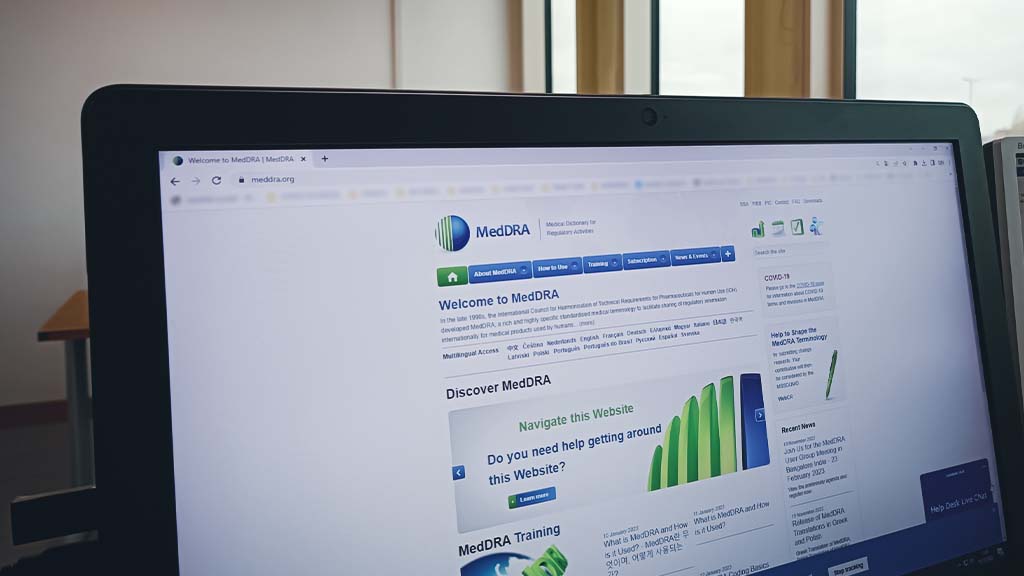The globalisation of pharmaceutical terms (MedDRA)

We all know how it is important today to keep up with the times in either personal or working fields, in a social context that is more and more globalised and standardised.
In the pharmaceutical sector, especially but not only in the field of pharmacovigilance, the MedDRA dictionary is an essential ally allowing Pharmaceutcal Companies as well as Competent Authorities (such as AIFA) all over the world to be always connected between them through a standardised and univocal language.
MedDRA (Medical Dictionary for Regulatory Activities) is a standardised dictionary of medical terms developed by the International Council for Harmonisation of Technical Requirements for Pharmaceuticals for Human Use (ICH) in 1999, when a need was felt for an unequivocal harmonisation of the exchange of information related to public health between the various stakeholders of the pharmaceutical sector.
The MedDRA dictionary is very useful as it is rich of terms and highly specific, since it applies to both the developmental and post-market phase of human medicinal products.
The dictionary was developed in English, however information is also available in Italian and it is possible to choose between several languages, including:
- Italian,
- English,
- French,
- Spanish,
- Portuguese,
- German,
- Czech,
- Hungarian,
- Chinese,
- Japanese,
- Korean
- Russian.
It is therefore an intuitive tool for the exchange of safety information between Authorities (for which it is free) and MA holders all over the world.
The MedDRA terms
Each MedDRA term is associated to a numeric code and is included in one of the 27 SOC (System Organ Class) groups, macro areas containing a series of subgroups divided into pathologic areas, that remains unvaried during the several and frequent updates (twice a year, in March and September of every year), and is the reference based on which it is possible to trace back to the correct translation of a given undesirable effect or disease.
These 27 groups are called MedDRA Soc List.
One of the examples better explaining the importance of the MedDRA dictionary in pharmacovigilance is the update carried out during the Coronavirus pandemic (COVID-19).
The MedDRA MSSO (Maintenance and Support Services Organisation), with the approval of the MedDRA Management Committee, has published an updated version, v. 23.0, with new terms and revisions regarding COVID-19 to allow organisations to manage medical information deleting any margin of error.
Approx. 70 new terms were implemented regarding COVID-19, that were grouped under the SOC “Infections and infestations”.
The consultation of the MedDRA dictionary is essential because it allows the pharmaceutcial world stakeholder to speak a universal and standardised language on the whole planet, according an approach increasingly linked to globalisation and process standardisation, so that when the safety of medicinal product is at stake, there are no margins of error such as to put patients’ health at risk.
Written by: Ersilia Fiorentino and Valerio Mangolini





